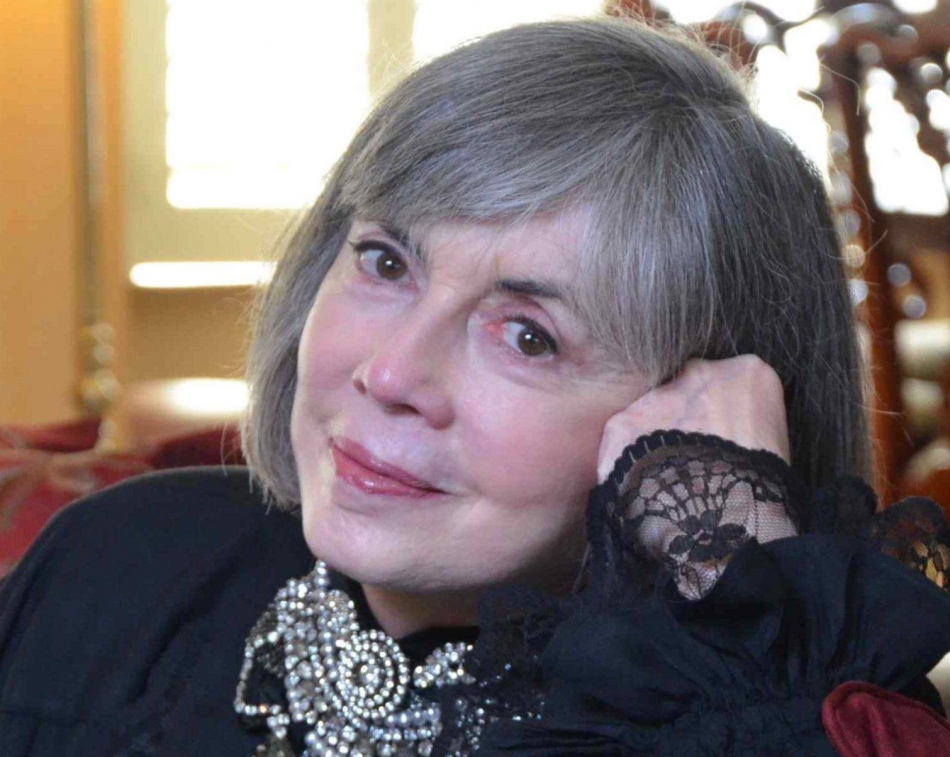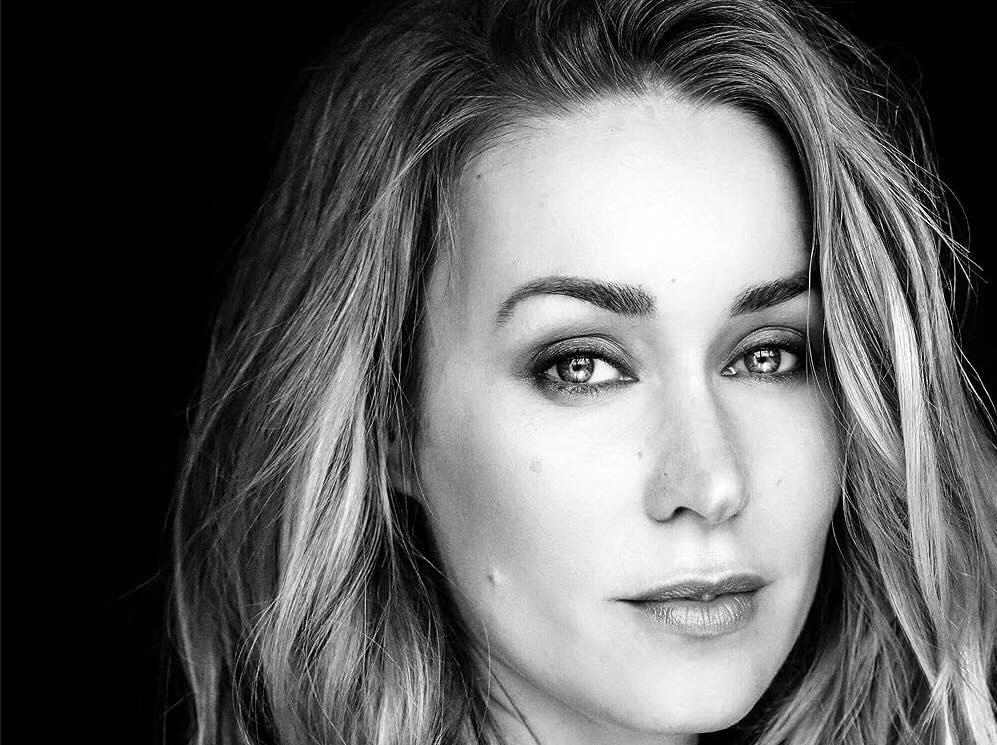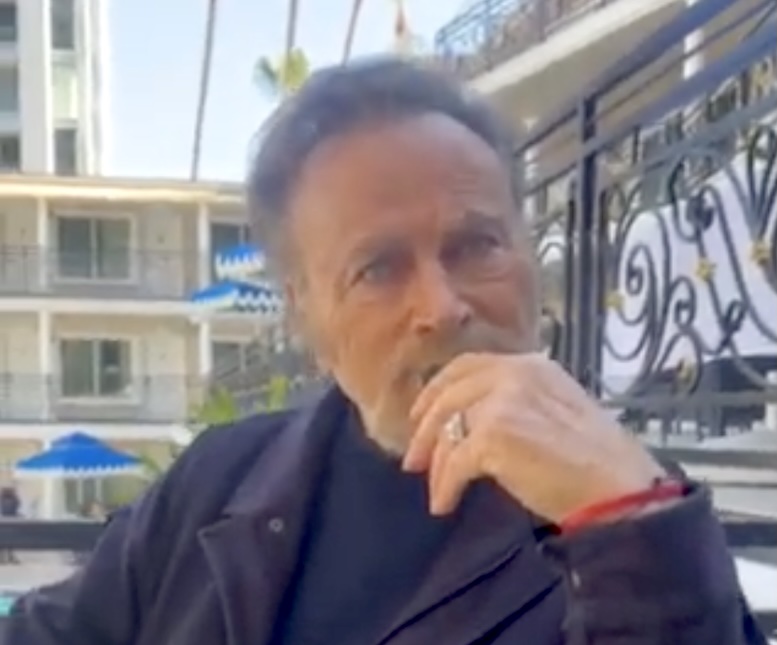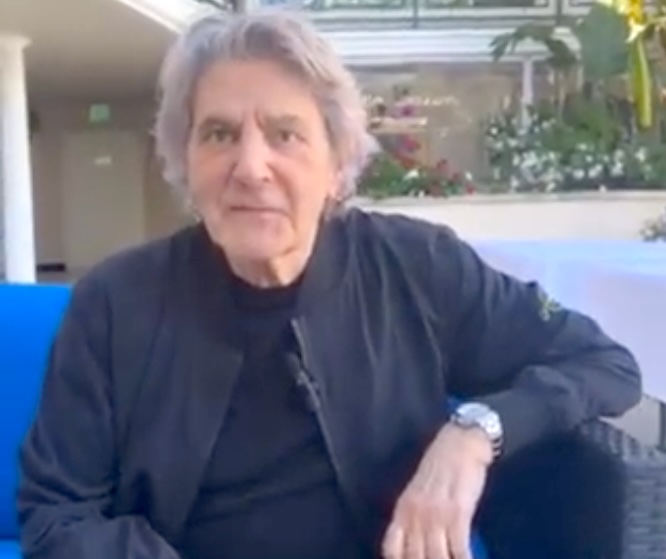Interview with the writer Anne Rice
Anne Rice is the author of the novel Interview with the Vampire

Q. Your recent novel is “Prince Lestat and the Realms of Atlantis”. Please can you tell us about this novel?
A. The Vampire Chronicles is a series of independent novels that track the lives and spiritual quests of vampires in today's world. It began in 1976 with the publication of "Interview with the Vampire," but really went into gear eight years later with the publication of "The Vampire Lestat" in which the hero of the series, Lestat de Lioncourt told the story of his becoming a vampire in the last days of the 18th century and of his quest to lead a heroic life in spite of what had befallen him, and to find out the origin and history of the Undead.
The new novel picks up Lestat well over 200 years later, in modern times. He has become the universally acknowledged monarch of the vampire tribe and he now faces a unique set of challenges as he tries to give the vampires of the world some sort of defensive unity. A new species of immortals come into the world of the vampires, bringing with them a unique history - that goes back to the lost kingdom of Atlantis 12,000 years ago - and it turns out that this history is directly connected to the vampires. The vampire are threatened with total destruction as the story of these new immortals unfolds.
Q. Can you explain us the importance of the city of Atlantis in the novel?
A. I've always been haunted by the legend of the lost kingdom of Atlantis, as told by Plato, and I wanted very much to write a full blown novel of Atlantis, and the type of kingdom it might have been. This new vampire novel gave me the opportunity to bring this desire into the realm of my vampire characters and their unique cosmology, and I found that the two themes merged very well. One major theme of the whole Vampire Chronicles series is that more and more information about the origins of the vampire is discovered over the years. We think we know the whole story; then in a new book we find out there is even more to the story; and later on yet another new book reveals even more. "Prince Lestat and the Realms of Atlantis" puts forth the idea that the lost kingdom of Atlantis is crucially connected to the origin of the vampires. And it leaves the door open for yet more discoveries about the spirit world that caused the vampires to be born.
Q. From the first book "Interview with the Vampire" to the series, did Lestat de Lioncourt somehow change his expectations?
A. In IWTV, Lestat is seen only from the point of view of Louis. The book is like a Proem now for the whole series. Lestat doesn't get to tell his side of things until he writes his own autobiography. Then we come to see Lestat in a wholly different light. Lestat's great tragedy in IWTV was that he could not impart to his fledgling vampire children, Louis and Claudia, all the secrets of their origins. Lestat was bound to keep secret what he knew or violate the trust of an ancient immortal, Marius. This had disastrous consequences for Lestat in IWTV. And we see that tragedy from Louis' point of view. But Lestat survived, and eventually tells all the secrets to the whole world of the Undead, and to the mortal world as well. It was in that explosive decision of his to reveal to all that the series was actually born.
Q. At the beginning of the novels we read, “It was a chorus as mighty as the wind as the waves, all those voices of the dying”. Why did you choose this apocalyptic beginning?
A. I wanted to begin with Lestat's dream of the destruction of Atlantis because it was the first hint to him that some great revelation would soon shake him and his world. Lestat does not know the origin of his dream of the perishing city. But it alerts him to the fact that he will soon have to contend with a new mystery. He senses grief and suffering related to the destruction of the city that is falling into the sea in his dream. It is terrible.
I have used this technique before in "The Queen of the Damned" where the vampires of the world begin to see visions of two red haired twins in ancient times. They do not know the meaning of these visions until the end of the novel. Well, Lestat, in my new novel does come to know the meaning of the vision of the perishing city - before the end of the novel - and he comes to know that it is directly related to whether or not he. Lestat, and his fellow vampires, will survive... or end up perishing as that city perished. The dream is a warning, an omen. The dream is a metaphor for the crisis the vampires face.
Q. If you could live in another era, which character would you be?
A. Maybe Peter the Great of Russia.
Q. A question about your private life. How is your day?
A. I live a simple and hermit like life. Because I am a type one diabetic I must adhere to a rigid schedule or eating and sleeping, and I also contend with exhaustion. So I get a lot of sleep, and try to work in the late morning and the afternoon, though when a novel is going well, I may work in the evening as well.
I have no social life, because any appointment of any kind interferes and distracts. So I live a very uneventful and quiet life. I have a small office and a small bedroom on the second floor of my house and I spend whole days up here without ever going downstairs. My main enjoyment, other than writing, is television - watching high quality films and TV series - anything with characters and narrative. And I do watch a whole spectrum of television series. I have a 90 inch TV screen and a very comfortable big room for watching TV. I think we are living in a golden age in television and film for supernatural novels and stories. "The Lord of the Rings," "Harry Potter," "Game of Thrones" have been wonderful for those who love supernatural fiction.
And this gives me great hope that the future will see a high quality TV series based on the life of my immortal hero, Lestat. There is nothing unusual about my life except perhaps how disciplined it is and quiet. I do spend a lot of time communicating with my readers on Facebook and Twitter, and I find this very fruitful indeed. I can ask my readers questions at any time and get marvelously illuminating answers. I can discuss current events with them. I can discuss the films and TV series and novels and music that I love. This is a marvelous resource for me. I don't know why more authors don't have active Facebook communities. I learn something from my "people of the Facebook page" every single day.
© All rights reserved
You Might Be Interested

Frank E. Flowers on The Bluff: Exclusive Interview & Behind the Scenes
Discover The Bluff, the drama movie with Priyanka Chopra Jonas, Karl Urban, Ismael Cruz Cordova. Plot, cast, interview

Psycho Killer, Georgina Campbell Interview
The statements of Georgina Campbell

Wicked For Good, Walk of Fame Ceremony, Michelle Yeoh interview
Michelle Yeoh Star Ceremony Speech

Reminders of Him, Hilary Jardine interview
Reminders of Him is coming out on March 13, 2026

Filming Italy Los Angeles 2026 - interview with Franco Nero
Filming Italy Los Angeles 2026 - interview with Franco Nero

Filming Italy Los Angeles 2026 - interview with Fausto Leali
Filming Italy Los Angeles 2026 - interview with Fausto Leali

I Can Only Imagine 2, Milo Ventimiglia interview
The statements of Milo Ventimiglia

I Can Only Imagine 2, Sophie Skelton interview
The statements of Sophie Skelton


